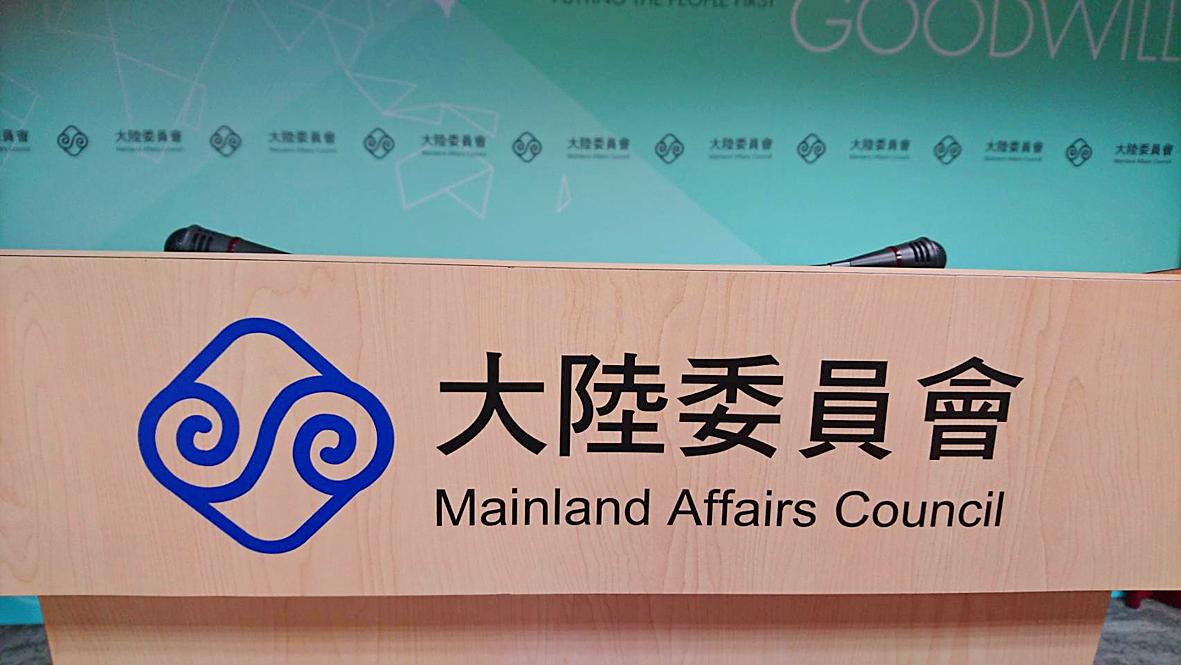China’s “united front” efforts targeting Taiwan are ubiquitous, and include the employment of Internet celebrities to carry out infiltration campaigns on social media, members of the Mainland Affairs Council’s (MAC) Advisory Committee said yesterday.
The council released the minutes of a committee meeting on China’s “legal war” against Taiwan and possible response measures.
The “legal war” aims to unilaterally define jurisdiction over Taiwan to legitimize annexing the nation based on Beijing’s so-called “democratic negotiations,” while preparing to negate Taiwanese legislation, the minutes said.
Committee members and academics who attended the meeting were not named in the minutes.
The National Security Law imposed by Beijing in Hong Kong is a model for China to draw up Taiwan-related regulations, the minutes said.
Globally, Beijing would continue to squeeze Taiwan’s international space and block the nation from joining international organizations as a sovereign state, they said.
On a civic level, Beijing aims to promote economic, social and cultural integration by linking identity documents for Taiwanese to China’s civic rights, it said.
To grasp the changes in China’s legislation related to Taiwan, the government should watch the implementation of Hong Kong’s National Security Law and the developments in the territory, the minutes said.
China’s legal war against Taiwan operates in tandem with other public opinion, psychological and diplomatic tactics, a committee member said.
Beijing has been employing Internet celebrities to wage “united front” and infiltration campaigns against Taiwan on video platforms or attack certain targets through social media, such as WeChat, in an attempt to circumvent legal regulations, the member said.
Taiwan should prepare countermeasures and share information with international partners to promote joint defense and security cooperation, the member added.
China’s legal war against Taiwan is ubiquitous, another committee member said, citing as examples Chinese People’s Liberation Army aircraft continuing to harass Taiwan and Beijing publicly denying the existence of the median line of the Taiwan Strait.
By rejecting the median line, Beijing is extending its dominion over Taiwan and unilaterally changing the cross-strait “status quo,” just as it enacted the National Security Law in Hong Kong and changed the territory’s “one country, two systems” framework, they said.
In addition to downgrading Taiwan’s international status, Beijing also purports to represent the nation’s interests in international disputes, as shown by its response to the arbitration of territorial disputes in the South China Sea, they said, adding that Taiwan should more actively express its objection to Beijing’s maneuvers.
Another committee member said that China has never abided by the rule of law, but only uses laws to achieve its political aims.
Beijing’s regulations about actual and claimed dominions are different, evidenced by the varied strength and flexibility of its National Security Law enacted in Hong Kong and its “Anti-Secession” Law targeting Taiwan, which deserves the nation’s unwavering attention, they said.
Source: Taipei Times - 2020/09/27





















